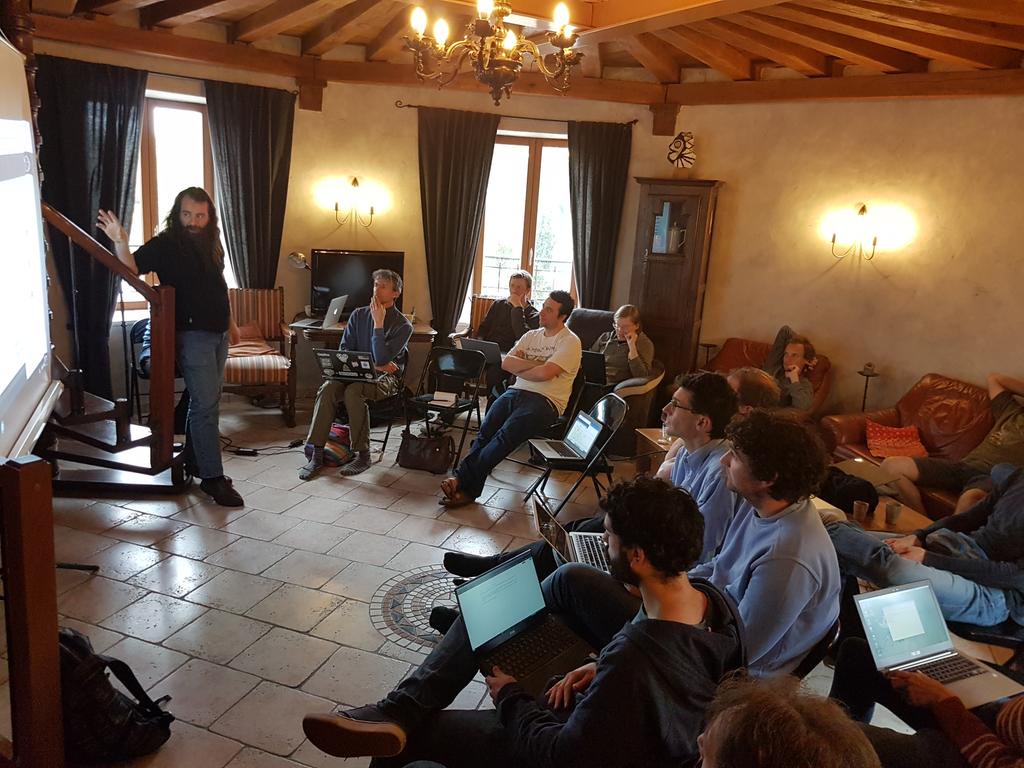## Main goals
This developer meeting was focused on initiating long term work on OpenDreamKit tasks related to packaging, portability and documentation tools for SageMath.
## OpenDreamKit implication
This event was organized and funded by OpenDreamKit (Paris Sud).
## Event summary
An intensive week with some short informal presentations, and many brainstorms and coding sprints.
## Demographic
11 OpenDreamKit participants from five sites together with 14 other experts of a variety of systems such as Oscar, Polymake, CERN’s Root, Cython, Jupyter and C++, Numba, Dask, libsemigroups.
## Results and impact
(Math) Computational systems face a tension between using high level languages (e.g. Python) for expressivity, ease of use and prototyping, and low-level languages (e.g. C/C++) for power and speed, and also for modularity (using existing libraries, or writing reusable ones). To resolve this tension, many approaches have been explored in the recent years, and the frontier between the two worlds is becoming increasingly blurry.
This workshop brought together developers from a large variety of horizons to share expertise, seek collaboration venues, and get into concrete action. This was quite bold of an aim.
Nevertheless, thanks to an informal and flexible format the week
ended up being very productive, as testified by the progress reports
and exit survey: to the question “Would you recommend to your
colleagues to attend a workshop with this format”, 9 answers were
yes definitely'' ad the other twoyes’’; a participant well
outside of OpenDreamKit’s usual scope wrote as testimony «The looseness made
it more productive than any workshop I’ve ever attended».
Notes were taken collectively with the eventual aim to author a joint survey of the available technologies and best practices; the current draft is available from https://www.overleaf.com/read/wrmkhfvwmxnz.

Jim Pivarski, CERN Root developer, presenting on columnar storage for HPC in the context of data analysis for high-energy physics
